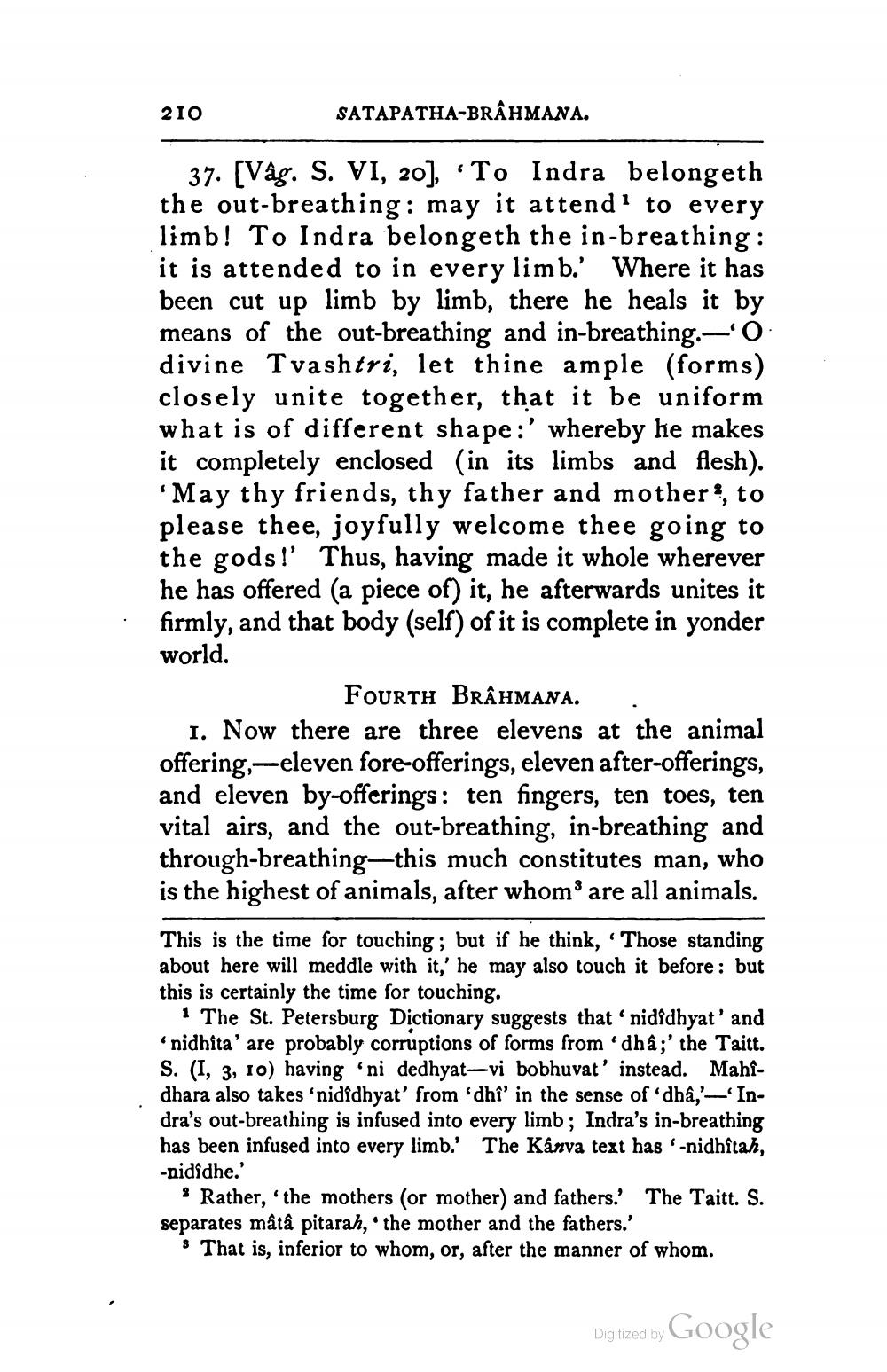________________
210
SATAPATHA-BRAHMANA.
37. [Vâg. S. VI, 20), "To Indra belongeth the out-breathing: may it attend to every limb! To Indra belongeth the in-breathing : it is attended to in every limb. Where it has been cut up limb by limb, there he heals it by means of the out-breathing and in-breathing.-'0 divine Tvashtri, let thine ample (forms) closely unite together, that it be uniform what is of different shape:' whereby he makes it completely enclosed (in its limbs and flesh). May thy friends, thy father and mother to please thee, joyfully welcome thee going to the gods!' Thus, having made it whole wherever he has offered (a piece of) it, he afterwards unites it firmly, and that body (self) of it is complete in yonder world.
Fourth BRAHMANA. I. Now there are three elevens at the animal offering,-eleven fore-offerings, eleven after-offerings, and eleven by-offerings: ten fingers, ten toes, ten vital airs, and the out-breathing, in-breathing and through-breathing—this much constitutes man, who is the highest of animals, after whom are all animals.
This is the time for touching ; but if he think, Those standing about here will meddle with it,' he may also touch it before: but this is certainly the time for touching.
1 The St. Petersburg Dictionary suggests that 'nididhyat' and nidhita' are probably corruptions of forms from 'dha;' the Taitt. S. (I, 3, 10) having ni dedhyat-vi bobhuvat' instead. Mahîdhara also takes 'nididhyat' from 'dhi' in the sense of.dha,' -Indra's out-breathing is infused into every limb; Indra's in-breathing has been infused into every limb.' The Kánva text has '-nidhitah, -nididhe.'
* Rather, the mothers (or mother) and fathers.' The Taitt. S. separates mâtä pitarah, the mother and the fathers.'
& That is, inferior to whom, or, after the manner of whom.
Digitized by Google




